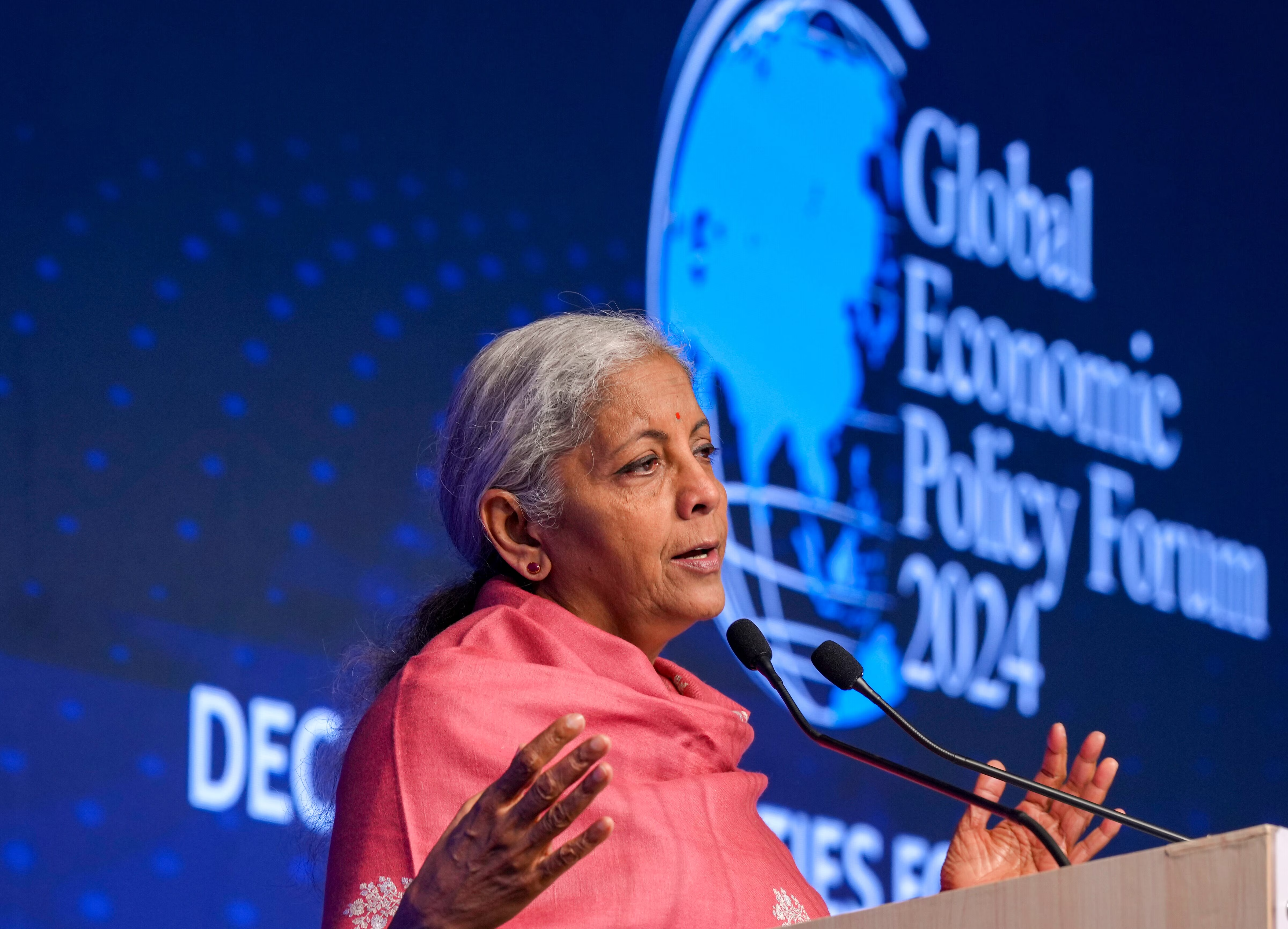- Courses
- GS Full Course 1 Year
- GS Full Course 2 Year
- GS Full Course 3 Year
- GS Full Course Till Selection
- Answer Alpha: Mains 2025 Mentorship
- MEP (Mains Enrichment Programme) Data, Facts
- Essay Target – 150+ Marks
- Online Program
- GS Recorded Course
- Polity
- Geography
- Economy
- Ancient, Medieval and Art & Culture AMAC
- Modern India, Post Independence & World History
- Environment
- Governance
- Science & Technology
- International Relations and Internal Security
- Disaster Management
- Ethics
- NCERT Current Affairs
- Indian Society and Social Issue
- NCERT- Science and Technology
- NCERT - Geography
- NCERT - Ancient History
- NCERT- World History
- NCERT Modern History
- CSAT
- 5 LAYERED ARJUNA Mentorship
- Public Administration Optional
- ABOUT US
- OUR TOPPERS
- TEST SERIES
- FREE STUDY MATERIAL
- VIDEOS
- CONTACT US
FDI Inflows into India Cross $1 Trillion, Making India a Top Investment Destination
FDI Inflows into India Cross $1 Trillion, Making India a Top Investment Destination

- India has crossed a major milestone in Foreign Direct Investment (FDI), receiving over $1 trillion in total FDI inflows from April 2000 to September 2024.
- This achievement highlights India's growing position as a top destination for foreign investments, supported by positive economic growth and effective policy reforms.
Total FDI Inflows:
- By September 2024, India has received $1,033.40 billion in total FDI, which includes equity, reinvested earnings, and other capital.
- This total covers the period from April 2000 to September 2024.
FDI by Source Countries:
- 25% of the FDI came from Mauritius, followed by 24% from Singapore, and 10% from the United States.
- Other countries contributing significantly include:
- Netherlands (7%)
- Japan (6%)
- United Kingdom (5%)
- United Arab Emirates (3%)
- Cayman Islands, Germany, Cyprus (2% each).
Monetary values of FDI from key countries:
- Mauritius: $177.18 billion
- Singapore: $167.47 billion
- United States: $67.8 billion
Key Sectors Receiving FDI:
The main sectors attracting foreign investment in India include:
- Services (leading sector)
- Computer Software and Hardware
- Telecommunications
- Trading
- Construction Development
- Automobile
- Chemicals
- Pharmaceuticals
These sectors are crucial to India’s economy and have attracted the most FDI.
FDI Growth in the Last Decade (2014-2024):
- Total FDI (2014-2024): $667.4 billion.
- This represents a 119% increase compared to the previous decade (2004-2014).
- Manufacturing Sector FDI (2014-2024): $165.1 billion.
- This shows a 69% increase compared to $97.7 billion in the 2004-2014 period.
Government’s Role in FDI Growth:
- Policy Changes: The Indian government keeps improving FDI policies to make it easier for foreign companies to invest.
- Regular updates ensure India remains attractive to investors.
- Production-Linked Incentive (PLI) Schemes: The government’s PLI schemes have played a big role in attracting investment, especially in areas like electronics and manufacturing.
Expert Views on Future Trends:
- Avimukt Dar, Founding Partner at INDUSLAW, believes that FDI inflows will remain strong.
- The tech sector, which had slowed down, is expected to pick up again as many investment funds are ready to reinvest.
- Rumki Majumdar, Economist at Deloitte India, suggests that FDI might stay steady for now due to possible policy changes in the U.S. and China’s economic plans.
- Geopolitical issues and changes in global supply chains could also affect capital flows. However, India’s focus on infrastructure development, skilling the workforce, and digital projects will drive future FDI.
- Manav Nagaraj, Partner at Shardul Amarchand Mangaldas & Co., predicts that FDI will keep rising in different types of investments, such as early-stage investments, growth capital, and strategic investments.
- India’s position as a top investment choice remains strong, especially for investors from the U.S., U.K., Europe, and Asia.
FDI Policy and Rules:
- Automatic Route: In most sectors, foreign investors can invest without needing government approval. They only need to inform the Reserve Bank of India (RBI) after making the investment.
- Government Approval Route: Some sectors, like telecommunications, media, pharmaceuticals, and insurance, require approval from the Indian government before foreign investments can happen.
- Prohibited Sectors: FDI is not allowed in certain sectors such as:
- Lottery, Gambling, and Betting
- Chit Funds
- Nidhi Companies
- Real Estate Business
- Manufacturing of tobacco products (e.g., cigars, cigarettes)
Importance of FDI for India’s Economy:
- Infrastructure Growth: FDI plays a major role in financing India’s infrastructure projects. This is especially important for India as it works to build more modern infrastructure to support economic growth.
- Balance of Payments: Foreign inflows help India manage its balance of payments and keep the value of the Indian rupee stable.
- Job Creation and Skill Development: FDI helps create jobs and improve skills in India, especially in advanced sectors like IT, pharmaceuticals, and automobile manufacturing.
- Technology Growth: FDI supports India’s technological development, particularly in sectors like software, hardware, and telecommunications.
What to Expect in 2025 and Beyond:
- Experts predict that FDI in India will grow in 2025, driven by:
- Strong economic growth,
- Attractive PLI schemes,
- Better industrial performance, and
- Ongoing government reforms.
- Despite global challenges, such as geopolitical tensions and shifts in global supply chains, India is expected to remain a top choice for foreign investment. India’s growing market, strong reforms, and investment-friendly policies will continue to attract global investors.
What is Foreign Portfolio Investment (FPI) ?
Key characteristics of FPI:
Benefits of FPI:
Risks of FPI:
Example: An Indian investor buying shares of a US-listed company like Apple or Tesla on the NASDAQ stock exchange is engaging in FPI. Foreign Portfolio Investment (FPI) and Foreign Direct Investment (FDI) differ in several key aspects:
Regulatory Framework in India:Both FPI and FDI are regulated by different entities in India:
Examples:
|



